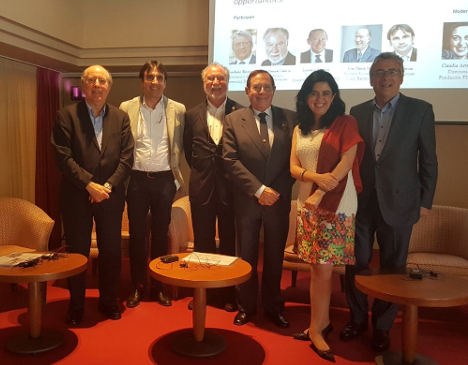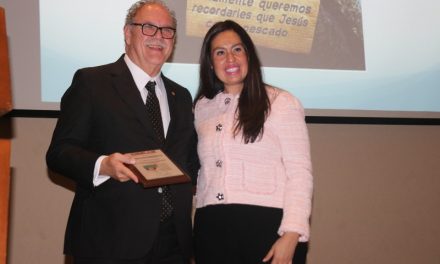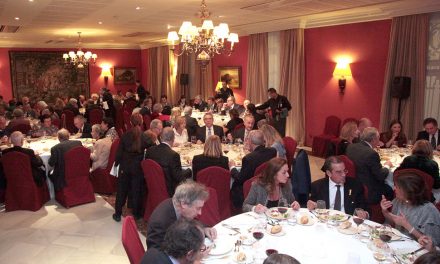
Participants in the debate “Economía, política y empresas: incertidumbres, riesgos y oportunidades” (Economy, politics and companies: uncertainties, risks and opportunities), held on June 9th within the program of the First Scientific Meeting of the Royal European Academy of Doctors-Barcelona 1914 (RAED) held in Fuerteventura, agreed to warn of a well-off and aging Europe that must face the challenges of globalization not as a mere customer, but as a competitor. The session was attended by academicians José María Gay de Liébana, José Manuel Calavia, Lorenzo Gascón and Frederic Borràs, as well the entrepreneur Nilo García Manchado. The journalist and professor of Political Communication Claudia Arteaga directed and moderated the debate.
Gay de Liébana envisioned a “bourgeois, dormant and stagnant Europe, which lags behind emerging countries like China or India”. Given this “crossroads scenario that puts us in a situation of uncertainty in the face of the new economic situation -he went on-, we wake up or die”. Calavia warned about the “break of political Europe, which gives way to populist or radical currents”. The academician asked for a “road map” marking the future of the European Union.
Gascón warned about the “uncertain future that points the current population pyramid”. “We must change the birth rate and increase the pension fund”, he said. Borràs said that “the center of gravity of the world has shifted to countries like China and India and Europe must be prepared to manage these changes”. Finally, García Manchado wanted to send a positive message, expressing his “confidence in the future of new technologies”.




